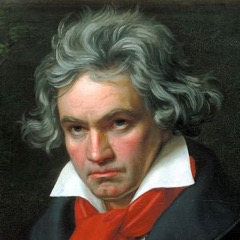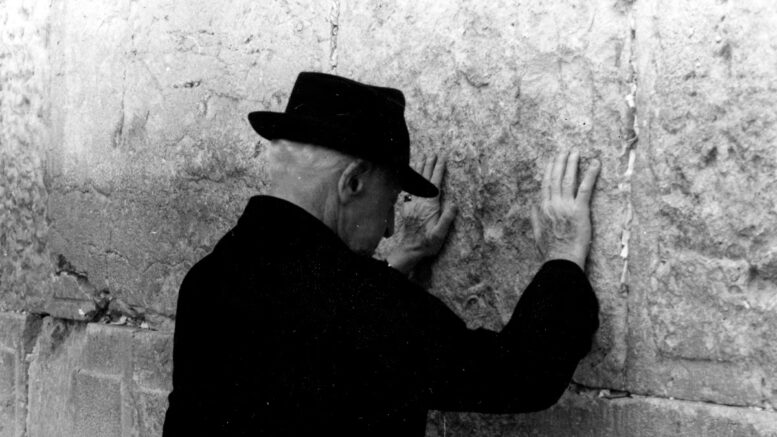Arthur Rubinstein was born on Jan 28, 1887 in Lodz, Poland. He was certainly one of the greatest pianists of the 20th century. Many regarded him as the greatest Chopin interpreter of his time. He played in public for more than 80 years! Rubinstein’s autobiography is so long and detailed that it comprises two volumes. He played throughout the world, and was loved on every continent! He was very much an extravert and took a big bite out of life! He said: “I have never missed a concert in my whole life, not through my fault, never.” All of his RCA recordings have been released on CD and total over 107 hours of music.
He was the youngest of seven children and his father owned a small textile factory. At the age of two, Rubinstein demonstrated perfect pitch and a fascination with the piano, while observing his elder sister’s piano lessons. By age four, he was recognized as a child prodigy. His father had a predilection for the violin and offered Rubinstein a violin; but because he preferred the piano, Rubinstein smashed it to pieces, for which he was promptly beaten by his parents.
He made his debut at age 7! At the age of ten, Rubinstein moved to Berlin to continue his studies, and gave his first performance with the Berlin Philharmonic in 1900, at the age of 13.
When he was 17 Rubinstein moved to Paris to launch his career in earnest, where he met the composers Maurice Ravel and Paul Dukas and became friends with the Polish composer Karol Szymanowski. He also played Camille Saint-Saëns’ Piano Concerto No. 2 in the presence of the composer.
Rubinstein made his New York debut at Carnegie Hall in 1906. He was not well received in the United States.
In 1908, Rubinstein was destitute and desperate, was hounded by creditors, and threatened with being evicted from his hotel room. He tried to hang himself but was not successful. He said that afterwards, he felt “reborn” and endowed with an unconditional love of life.
In 1912, he made his London debut, and found a home there in company with Igor Stravinsky, Pablo Casals, and Pierre Monteux. During World War I, Rubinstein stayed in London, worked as a translator and gave recitals and accompanied the violinist Eugène Ysaÿe. He was disgusted by Germany’s conduct during the first world war and never played there again. His last performance in Germany was in 1914. In 1916 and 1917, he made his first tours in Spain and South America where he was wildly acclaimed. It was during those tours that he developed a lifelong enthusiasm for the music of Enrique Granados, Isaac Albéniz, Manuel de Falla, and Heitor Villa-Lobos, who dedicated his Rudepoêma to him. Stravinsky dedicated his Three movements from Petrouchka to him.
In his youth Rubinstein practiced as little as possible. He was able to learn new pieces quickly and relied on his personal charm to conceal the lack of finish in his playing. Amazingly, Rubinstein was a clever faker in the earlier years of his career. He didn’t like to practice! In an interview he explained and demonstrated how convincing he was at faking a passage of Chopin’s A minor Etude with his right hand!
Although he was already very successful, when he heard Vladimir Horowitz play, he was stunned, and decided to do something about his own lackadaisical attitude towards his piano technique. He started doing some very serious practicing in the early thirties. Rubinstein withdrew from performing for several months of intensive study and practice. ”I buckled down back to work—six hours, eight hours, nine hours a day.” “And a strange thing happened… I began to discover new meaning, new qualities, new possibilities in music that I had been regularly playing for more than 30 years.” He believed in some spontaneity in concert. “At every concert I leave a lot to the moment. I must have the unexpected, the unforeseen…It’s like making love. The act is always the same, but each time it’s different.”
Rubinstein toured the United States again in 1937, and his career became centered here during World War II when he lived in Brentwood, California. He became a naturalized American citizen in 1946. During his time in California, Rubinstein provided the piano soundtrack for several films, including Song of Love with Katharine Hepburn. He appeared, as himself, in the films Carnegie Hall and Of Men and Music. Although best known as a recitalist and concerto soloist, Rubinstein was also an outstanding chamber musician, partnering with Jascha Heifetz, Pablo Casals, Gregor Piatigorsky and the Guarneri Quartet. He was one of the earliest champions of Spanish and South American composers, as well as French composers of the early 20th century such as Debussy and Ravel. Rubinstein also promoted the music of his compatriot Karol Szymanowski. At one point Rubinstein said that Brahms was his favorite composer.
By the mid-1970s, Rubinstein’s eyesight had begun to deteriorate. He retired from the stage at age eighty-nine in 1976.
Rubinstein was fluent in eight languages and held much of the repertoire, not only that of the piano in his photographic memory. It was so amazing that he could even visualize a coffee stain on a page of music. His memory was sometimes put to the test by Rubinstein’s friends, who would randomly pick excerpts from opera and symphonic scores and ask him to play them from memory.
Rubinstein had a great affinity for Chopin, who was also Polish. There’s video clip of him at age 90 recalling an fascinating incident whereby the opera singer Emmy Destinn asked him how Chopin himself played the piano. Of course Chopin died before Rubinstein was even born, but he suddenly found himself at the piano playing one of Chopin’s compositions, which he had never performed before.
At the age of 45, in 1932, Rubinstein married Nela, (Aniela) a 24-year-old Polish ballerina. Her father was the co-founder and director of the Warsaw Philharmonic, Emil Mlynarski, who conducted Rubinstein’s first concert there, and later that’s how he met Nela. They had five children. Before and during his marriage, Rubinstein carried on a series of affairs with women with whom he had at least one child. ”It is said of me that when I was young I divided my time impartially among wine, women and song. I deny this categorically. Ninety percent of my interests were women.” Though he and his wife never divorced, in 1977, at age 90, he left her for 33 year old Annabella Whitestone, with whom he lived until his death at age 95. She was 57 years his junior!
Rubinstein was very proud of his Jewish heritage. He was a great friend of Israel, which he visited several times with his wife and children. He played many concerts with the Israel Philharmonic, and played recitals, and master classes at the Jerusalem Music Center. Rubinstein lost several family members in the Holocaust. In 1949, along with other prominent musicians including Horowitz and Heifetz, he announced that he would not appear with the Chicago Symphony if it engaged the conductor Wilhelm Furtwängler, who had continued conducting in Germany during the 2nd W.W.
Rubinstein was active in supporting charities throughout his life. In 1961, he performed ten recitals in Carnegie Hall to raise approximately $100,000 for charities including Big Brothers, the United Jewish Appeal, Polish Assistance, the Musicians Emergency fund, the National Association for Mental Health, and the Legal Defense Fund of the National Advancement of Colored People. He donated 100K to the Weizmann Institute of Science in Rehovot, 50K to the Israel-America Cultural Foundation, and in his will he left 500K to the city of Jerusalem, stipulating that the money be used by the Jerusalem Foundation for cultural purposes. In 1974, Jan Jacob Bistritzky established the Arthur Rubinstein International Piano Master Competition, held every three years in Israel, to promote the careers of young outstanding pianists. The Rubinstein Competition also commissions works by Israeli composers.
Around age 70 Rubinstein began offering critical musical advice to pianists, who played for him. He received many honors including the Presidential Medal of Freedom, the Legion of Honour, and the Kennedy Center Honors. He won several Grammy awards including the Grammy Lifetime Achievement Award and was voted into Gramophone’s Hall of Fame in 2012.
Rubinstein died in his sleep, at his home in Geneva, Switzerland in 1982, at the age of 95, and his body was cremated. On the first anniversary of his death, an urn holding his ashes was buried in Jerusalem—as specified in his will—in a dedicated plot now called “Rubinstein Forest” overlooking the Jerusalem Forest.
In 2007, his family donated to the Juilliard School an extensive collection of his music that had been seized from his home in Paris by the Germans during World War II. Seventy-one items were returned to his children, marking the first time that Jewish property kept in the Berlin State Library was returned to the legal heirs.
Throughout his life, Rubinstein was deeply attached to Poland. At the inauguration of the UN in 1945, Rubinstein showed his Polish patriotism at a concert for the delegates. He began the concert by stating his deep disappointment that the conference did not have a delegation from Poland, and angrily pointed out the absence of the Polish flag. He then sat down and played the Polish national anthem loudly and slowly, repeating the final part in a great thunderous climax. When he finished, the audience rose to their feet and gave him a great ovation. He played Chopin’s Heroic Polonaise in A flat major as an encore during one of his triumphant returns to Poland.

